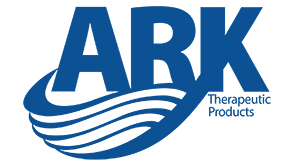Brain Health Tips
15th Mar 2012
The brain is still developing well into young adulthood. What we do now will affect the health of our brain in the years to come. Take a look at these tips to ensure your brain has what it needs to function at its highest potential for learning.

.
Things to consider for your brain to function at its best – and for you to feel your best:
.
EAT A RAINBOW
Eat a colorful array of organic fruits and vegetables every day. Each color contains different vitamins and minerals good for the brain.
.
DON’T EAT FAKE STUFF
The brain likes food, real food: protein, colorful fruit and veggies, whole grains, and healthy fats. Limit or eliminate artificial dyes, flavors, processed foods, fast foods, junk foods, sodas, and refined sugars.
.
KEEP YOUR BRAIN LUBED
Your brain needs Omega 3s, also known as Essential Fatty Acids (EFAs), for healthy growth and development. EFAs speed neural signals, making smoother, more efficient communication across synapses in your brain. Research shows that EFAs are brain food: cold water fish, salmon, herring, sardines, mackerel…if this isn’t your thing, try an Omega 3 supplement (one that’s molecularly distilled and purified).
.
PUMP UP YOUR O’s
Drink H20 to hydrate (divide your body weight by 2 to get the approximate # of oz. to drink each day) & take slow, deep breaths (breathe in more 02) to reset and calm the sensory and neurological system. Deep breathing daily helps self-regulate and improves immunity, emotional regulation, and thinking.
.
MOVE, CHILL, & SLEEP
The brain loves exercise. Exercise boosts brain power. You also need to teach your brain to relax – getting out into nature, reading, yoga, etc. can all help. Long-term stress can be toxic to the brain. Regular sleep is also important!
.
REWIRE YOUR THINKING
Positive affirmations can reset your thinking. If you say something enough, you believe it. If you believe something enough, it often comes true! Power words and positive affirmations can rewire the story of your life. Check out Louise Hay’s work. Problem solve and see mistakes as opportunities for new learning.
.
General Brain Foods: cold water fish, nuts and seeds, vegetables, fruits (blueberries, avocados, leafy greens), whole grains (quinoa and millet), lean proteins, water…basically real food that comes from the earth and not out of a box will do your brain right. Excessive refined sugar – not good for the brain. Be good to your brain!
.
A special thanks to Lauren Zimet, MS, CCC-SLP at Healthy Foundations and Early Insights for these useful tips! Passionate about giving children a healthy start in life, Lauren is a speech, language, and early communication specialist with more than 15 years of professional experience. A speaker, educator, and strong advocate of brain health, Lauren supports parents on complex journeys, encouraging optimal health and wellness for children.
.

